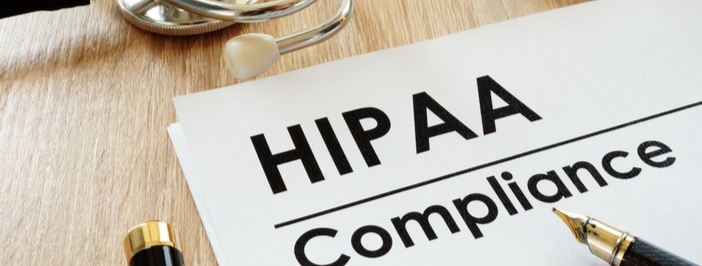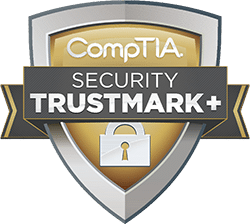5 Ways Technology Can Ensure HIPAA Compliance
Most all healthcare entities are in the business of digital patient data.
While this accessibility to patient data can help improve care, it also must be safeguarded per the rules of HIPAA. No medical practice, hospital, or other healthcare organization can underestimate the importance of building a robust HIPAA compliance program.
With new and innovative technology, you can fully ensure your HIPAA compliance.
How Does HIPAA Compliance Impact Healthcare Operations?
HIPAA sets the standard for the protection of patient data.
Any organization that handles Personal Health Information (PHI) must ensure that all security measures, both physical and network, are in place and followed accurately.
The objective is to protect the privacy of each patient while also allowing the healthcare ecosystem to adopt new technology to improve the efficiency and quality of care.
If a healthcare data breach occurs then your organization could face fines and other penalties.
According to the HIPAA Journal, there have been 2,546 data breaches from 2009 to 2018, resulting in the exposure of 189,945,874 healthcare records. That is equal to about 59% of the US population.
So you don’t become a statistic, here are some practical ways technology can ensure your HIPAA compliance.
Use Technology to Prepare Healthcare Workers
In a recent study, 78% of healthcare workers were found to lack data privacy and security preparedness. Health organizations must have written policies and procedures related to HIPAA compliance.
The problem is, they may not always be accessible.
Also, here’s an important question to answer: if HIPAA regulations change, are your employees informed?
With a HIPAA compliance portal, you can store your documentation and updates securely and enable easy access.
Further, you can also establish regular security training and compliance testing by working with a consultant that can provide in-depth programs, as well as best practices and advice on how to protect patient data.
Request a Security and Risk Assessment
Work with knowledgeable, experienced HIPAA compliant technology specialists to evaluate every system that stores, receives, transmits, or maintains PHI records.
This can help identify any potential threats or weaknesses, which could save you from a breach.
Establish Security Basics
Security needs to be part of your organization’s culture.
Creating policies that support this mindset and help with compliance is a must. Specific technologies can be used to enhance your security.
One control to consider is Unique User Authentication.
All users would have unique usernames and passwords for access to any device on your network. Access control is another technology policy to use. With this tactic, any session would be terminated after a certain amount of idle time to prevent others from accessing the data.
If you have employees that work remotely and have data access, you also need to create a policy to protect your data in these situations.
Employ Cloud Encryption
Cloud solutions offer a way to store PHI offsite, which can decrease costs. But the cloud must be safe.
With encryption, all data types—documents, images, videos, and more—will also be secure. Special algorithms are used to encrypt data then it’s stored on the cloud.
See All Actives with Audit Logging
An audit log is a set of records that detail a sequence of activities for an operation, procedure, or event. It can be generated in relation to healthcare data transactions.
This log provides a clear view as to what occurred in the transaction and who took the actions.
If there is ever a breach, this audit log could be evidence to determine what happened and why.
HIPAA compliance is vital to your healthcare operations.
Often having the assistance of a professional healthcare IT firm can help shoulder the burden and reduce risk.
If you’d like to learn more about our HIPAA solutions, contact us today.














